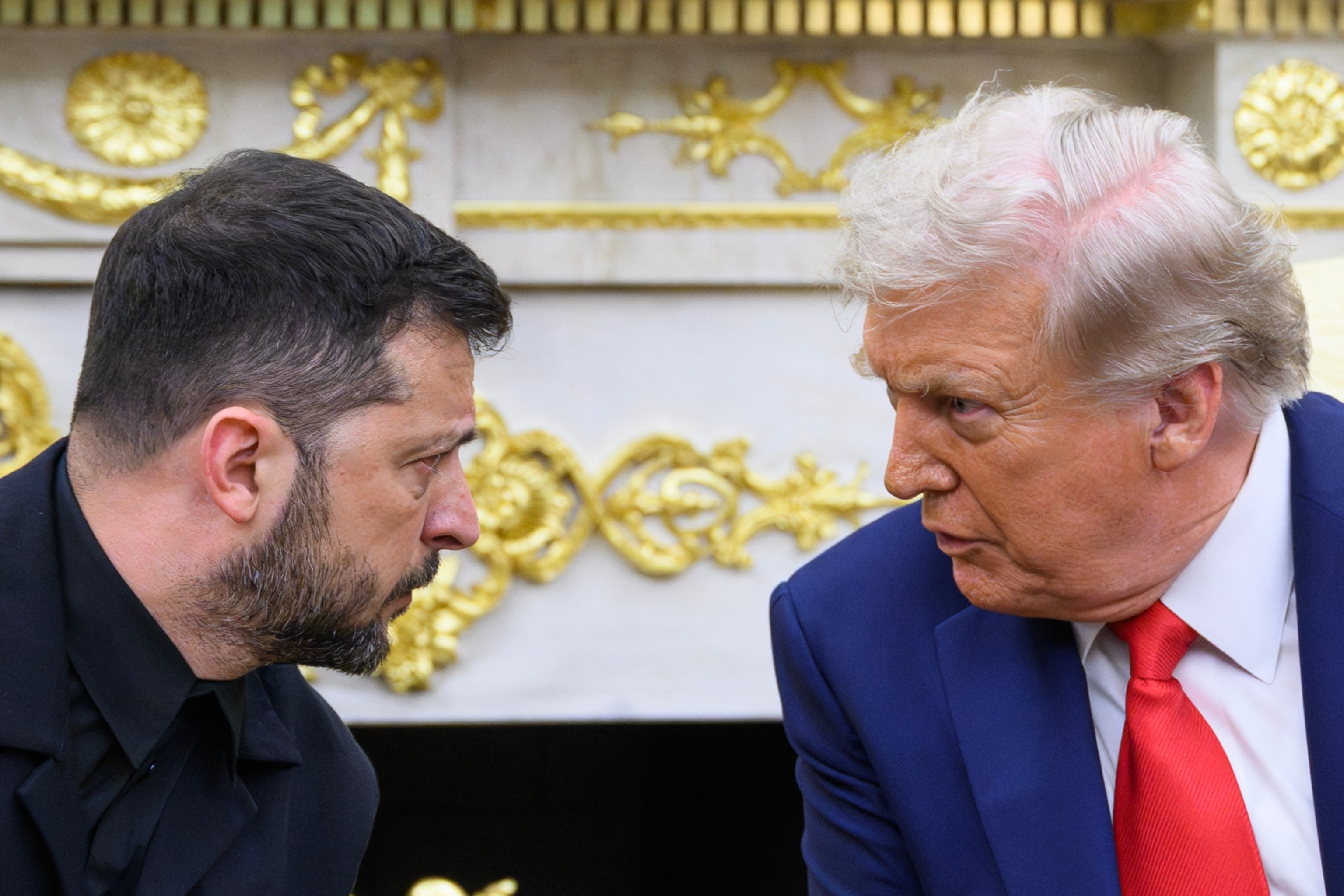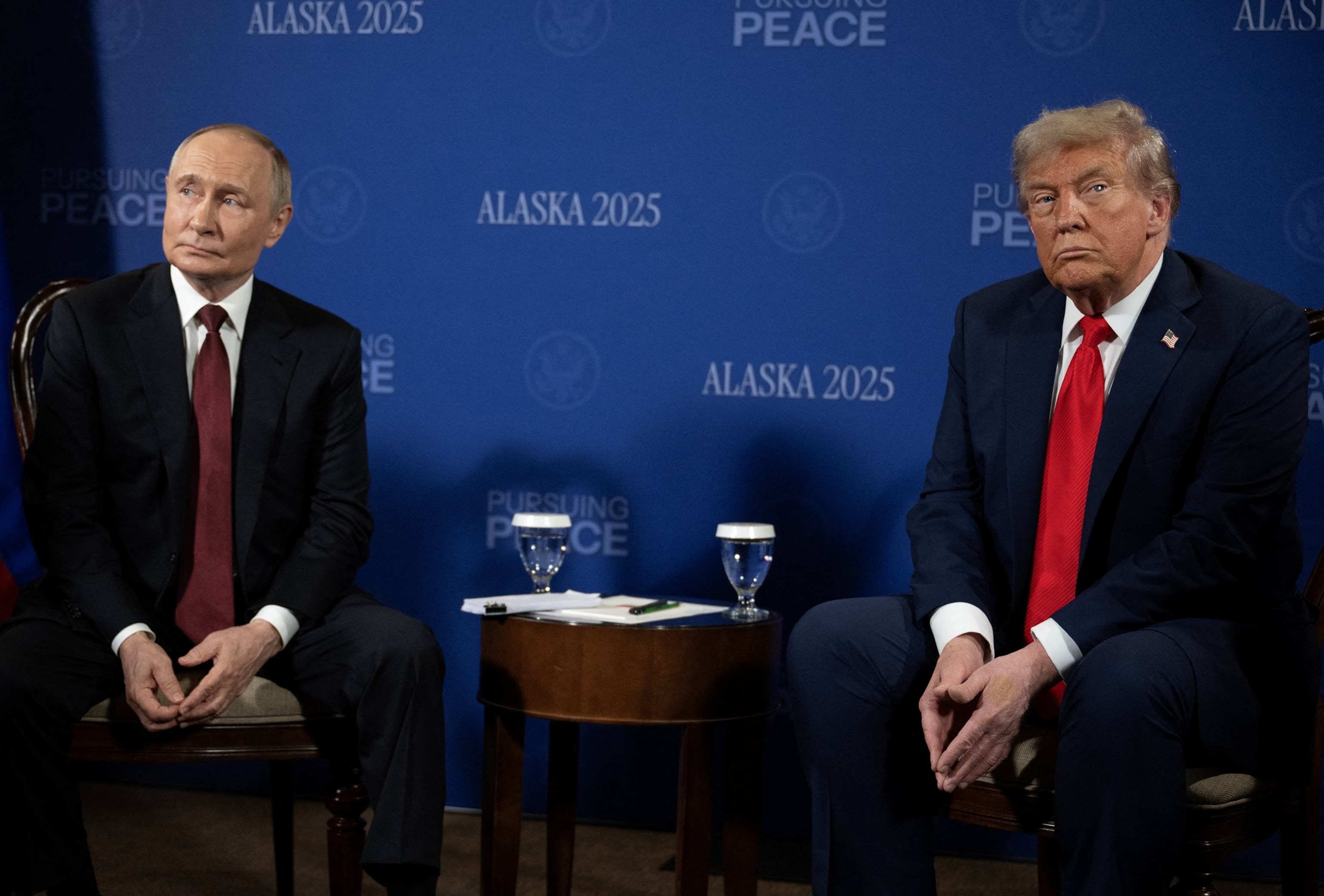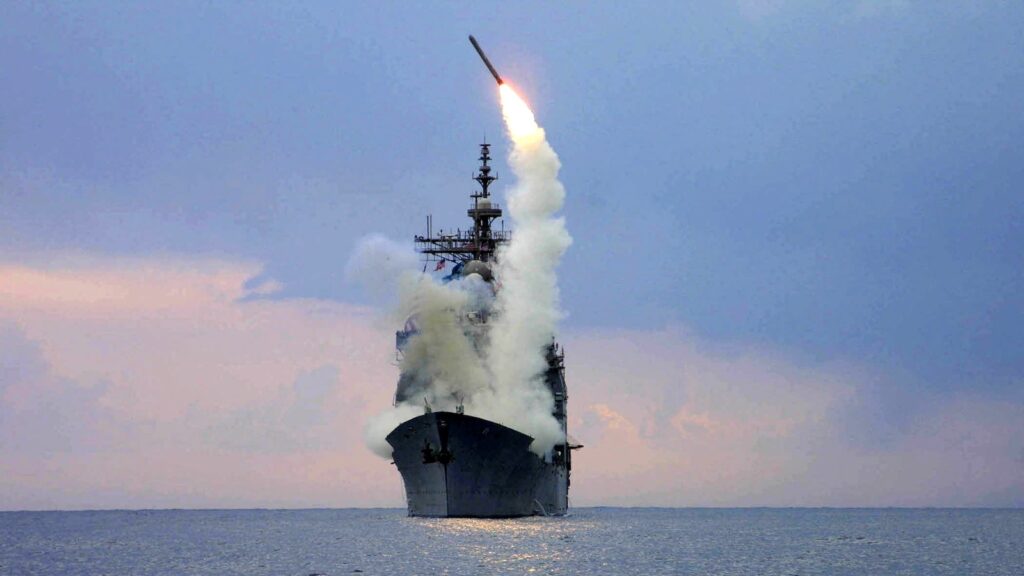Ukrainian President Volodymyr Zelenskyy said Thursday that discussions over a transfer of military assets from the United States — including its coveted Tomahawk cruise missiles — has motivated Russian President Vladimir Putin to meet President Donald Trump in Budapest, a new diplomatic booking that Trump announced on Truth Social Thursday.
Trump’s announcement of a meeting with Putin — which he said would take place in the next two weeks — comes a day before he’ll meet with Zelenskyy for the third time in Washington and as U.S. officials have touted a new mechanism by which European allies purchase American-made military hardware for Ukraine’s fight.
Trump has mused publicly about the possibility of sending the Tomahawks, which have a range of up to 1,500 miles, to Ukraine, while Zelenskyy has said a sale of the long-range weapons could bolster its war effort.
Trump said that he and Putin “didn’t say much” about the topic of Tomahawks in a phone call Thursday, but they “did talk about it a little bit.” The president hedged on the possibility of releasing the missiles from the U.S. stockpile, noting “we need Tomahawks for the United States.”
Sailors assigned to Navy Munitions Command Pacific, East Asia Division, Unit Guam load UGM-109 Tomahawk missiles onto the Los Angeles-class fast-attack submarine USS Jefferson City, May 6, 2025.
U.S. Navy
“We can’t deplete [them] for our country,” he said. “I don’t know what we can do about that.”
Trump was more bullish on Sunday, saying “If this war is not going to get settled, I’m going to send them Tomahawks.”
Upon landing in Washington Thursday, Zelenskyy said the agreement for a Budapest meeting was a product of the U.S’s public pressure.
“Moscow is rushing to resume dialogue as soon as it hears about Tomahawks,” he wrote on X.
In a meeting of U.S. officials and a Ukrainian delegation in Washington, officials on both sides welcomed the news of a Trump-Putin meeting, according to a U.S. official. The officials believed Trump’s phone call with Putin could yield progress for his meeting with Zelenskyy on Friday, the source said.
Tomahawks: Scarce but impactful
The U.S. would have to be careful doling out the missiles in light of “underinvestment” in its munitions stockpile, said Tom Karako, the director of the Missile Defense Project at the Centers for Strategic and International Security.
The U.S. has already expended the Tomahawks in “relatively low-risk operations,” Karako said.
“These are scarce non-nuclear strategic assets, and they need to be husbanded and stewarded” for high-value targets, Karako said. “Degrading high-value Russian assets strikes me as exactly the sort of thing they’re good for.”
The deep range and heavy payloads deliverable by the Tomahawks would “enable a ‘Spiderweb’ operation at range,” Karako said, referring to Ukraine’s stealth attack on Russian military assets using drones hidden inside Russia. “You don’t have to smuggle stuff into Russia” if Ukraine is equipped with Tomahawks and the necessary systems to launch them from land.

Ukrainian President Volodymyr Zelenskyy and U.S. President Donald Trump meet in the Oval Office of the White House in Washington, D.C., on Aug. 18, 2025.
Mandel Ngan/AFP via Getty Images
But the U.S. has only recently developed a very small number of the ground-based launchers required for the missiles, raising the question of whether it’s capable of providing Ukraine with launchers on short notice.
The U.S. Army received a prototype for the Typhon missile launcher in 2022 and has operationalized it only recently. The Typhon is essentially a large tractor-trailer and lacks the mobility needed for the battlefields of Ukraine.
In its budget proposal for next year, the Marine Corps killed its Long Range Fires program that became operational in 2023 in limited numbers. That system was also capable of launching Tomahawk missiles, but the Marine Corps felt it was not mobile enough for its needs.
The Army has now taken over the program as a way to improve upon the mobility limitations of its current Typhon system.
Oshkosh Defense introduced at a symposium of the Association of the U.S. Army this week a new, more-compact vehicle from which Tomahawks can be launched.
The platform, which Oshkosh calls “the future of long-range munitions,” is not currently in production, a company spokesperson told ABC News.
Still, if the U.S. could provide the missiles and a complementary platform, the weapons system could be a tactical menace to Moscow, Karako said.
Ukraine could expect “a chilling effect on the ease with which Russia has been able to operate with impunity not far from the Ukrainian border,” he added.
They would almost certainly come with U.S. conditions for targeting, Karako said.
“I would not expect them to fly through the window of the Kremlin,” he said.
Zelenskyy has committed to using the weapons only for “military goals.”

U.S. President Donald Trump and Russian President Vladimir Putin meet during a U.S.-Russia summit on Ukraine at Joint Base Elmendorf-Richardson in Anchorage, Alaska, on Aug. 15, 2025.
Andrew Caballero-reynolds/AFP via Getty Images
Trump administration’s tone shift
Speculation over Tomahawks — and signals from Washington and Moscow — have come amid a shift in tone from the Trump administration after the president’s bilateral meeting with Putin in Alaska did not yield the trilateral meeting, including Zelenskyy, that he sought.
The Kremlin has said a sale of Tomahawks by the U.S. would represent an “escalation.”
The Ukrainians, meanwhile, have pointed to other weapons systems as a part of their wish list, including Patriot air defense systems.
U.S. allies in Europe have been purchasing U.S. military assets for Ukraine via the Prioritized Ukraine Requirements List, or PURL — an initiative spearheaded by Trump to arm Ukraine without spending U.S. funds and touted by Defense Secretary Pete Hegseth in a meeting of NATO allies Wednesday.
In remarks in Brussels, Hegseth called Russia’s war in Ukraine “continued aggression,” verbiage he’s been hesitant to use in the past.
“If this war does not end, if there is no path to peace in the short term, then the United States, along with our allies, will take the steps necessary to impose costs on Russia for its continued aggression,” Hegseth said.
A European diplomatic source told ABC News that Patriot air defenses from the U.S. have been discussed under the PURL mechanism, but that new arms sales for Ukraine will largely depend on the high-stakes meeting between Trump and Zelenskyy on Friday.
Matthew Whitaker, the U.S. ambassador to NATO, said this week that Tomahawks would put “a lot of Russian oil and gas infrastructure at risk.”
“Putin’s going to continue to get weaker and weaker,” Whitaker said. The decision of whether to send them to Ukraine, though, would depend on the president, he said.

